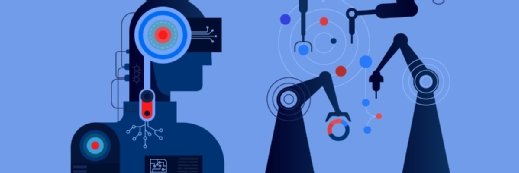
Chinnapong - stock.adobe.com
NLP Model Enhances COVID-19 Treatment Through Message Classification
An NLP model classified patient messages with 94 percent accuracy, lessening the time between provider response and COVID-19 treatment.
Emory University School of Medicine and Georgia Institute of Technology (Georgia Tech) researchers used natural language processing (NLP), a type of artificial intelligence (AI), to enhance COVID-19 treatment through the classification of patient messages, which led to a faster treatment process.
As the COVID-19 pandemic progressed and in-person care restrictions proliferated, messaging clinicians became more commonplace. Despite its benefits, high message volumes were associated with logjams, leading to response delays and limited treatment timeliness.
Researchers aimed to implement NLP to streamline the patient messaging and treatment response process. Blake Anderson, MD, CEO of Switchboard and an Emory primary care physician, created the NLP model known as eCOV. Prior to application, Anderson worked with Georgia Tech to validate eCOV.
“We’re trying to take a mountain of incoming data and extract what’s most relevant for people who need to see it so patients can get care faster,” said Anderson, who is also a senior author of the study, in a press release.
Throughout the study period, 3,048 messages contained a positive COVID-19 test result, prompting the use of the NLP model.
Research showed that the NLP model successfully classified patient messages with an accuracy level of 94 percent. This led to faster responses from providers, resulting in a higher chance of patients obtaining antiviral medical prescriptions within five days.
According to researchers, not only did this model prove effective in treating COVID-19, but it also indicated potential for treating other conditions.
“We were excited to see how natural language processing accurately and instantaneously triaged patient messages reporting a positive COVID-19 test and helped improve patient access to treatment,” said Nell Mermin-Bunnell, a third-year student at Emory's School of Medicine and the lead author on the study, in the press release. “While this model proved effective for this specific application, there are opportunities to broaden the scope beyond COVID-19 diagnoses.”
Researchers also noted the need to further analyze the relationship between eCOV and clinical outcomes.
Prior research has indicated the extent to which organizations use NLP to enhance practices.
Research from June 2022 showed that NLP provided insight into the youth mental health crisis. This data came from a report from the Crisis Text Line, a nonprofit organization that provides text-based mental health support.
This report described text conversations that were indicative of mental health across the county. Among 40 million text messages, common themes that emerged related to mental health struggles, anxiety, depression, and suicide. The report also emphasized how the COVID-19 pandemic worsened the mental health crisis.
The Crisis Text Line described how it used NLP for the report, which assisted them in gaining an understanding of common conversation topics.
More research from April 2022 indicated that NLP is widely used to analyze bipolar disorder.
In this review, researchers explored various cases that involved the use of NLP to understand the disorder. They found that the use of NLP, along with social media data, led to early detection, clinical evaluation, and suicide prevention. They also found that using NLP along with EHR data could assist in the creation of predictive diagnostic algorithms for bipolar disorder.





